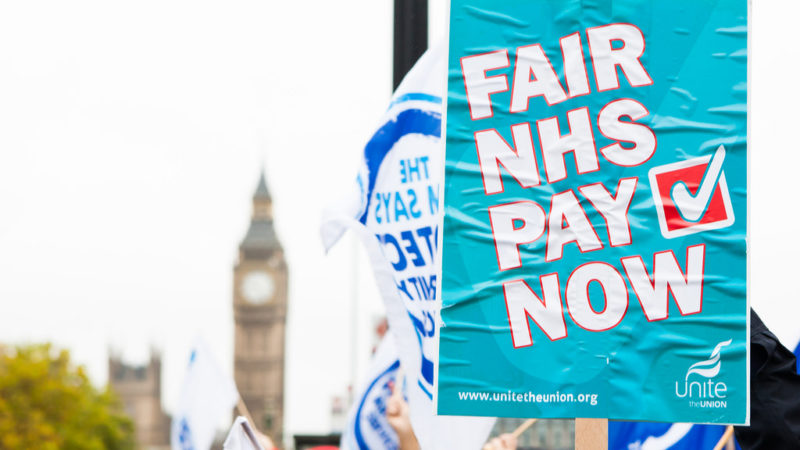‘Today’s announcement represents yet another pay cut in real terms and serves only to increase the losses faced by doctors after more than a decade’s worth of sub-inflation pay awards.’

The Prime Minister is finally splashing some cash, offering rises of between 5 and 7 percent to public sector workers. But the BMA has rejected the public pay offer to doctors, saying it ‘fails to address’ a decade of sub-inflation pay deals.
We take a look and which sectors have been offered what, and how many of the offers fail to recognise or remedy real terms pay cuts, and fall below the rises unions and workers have been asking for.
Consultants and doctors
Both hospital consultants and junior doctors are being offered a 6 percent increase. The latter is also being offered a consolidated rise of £1,250. However, the offer is well below the 35 percent rise the British Medical Association (BMA) says it needs to make up for years of real-terms pay cuts.
Prof Philip Banfield of the BMA, said the government’s offer “is exactly why so many doctors are feeling they have no option but to take industrial action”.
“Today’s announcement represents yet another pay cut in real terms and serves only to increase the losses faced by doctors after more than a decade’s worth of sub-inflation pay awards.
“It completely ignores the BMA’s calls to value doctors for their expertise by full pay restoration to 2008/2009 levels,” Banfield added.
Civil servants
Sunak’s pay offer will see senior civil servants receive a 5.5 percent pay rise. The increase is in line with the recommendation made by the review body of senior civil servants’ salaries.
Police
Police officers, who are unable to strikes, have been calling for a minimum 17 percent pay rise. In March, the Police Federation of England and Wales (PFEW) made the call, following an independent study by a leading non-partisan think-tank which showed a landslide decline in police pay since 2000. The research by Social Market Foundation (SMF) revealed that real-terms police pay has fallen almost 20 percent behind inflation between 2000 and 2022.
It was announced this week that the sector is to receive a pay rise of 7 percent – the biggest award by sector along with that for prison officers.
The Police Federation, which represents rank-and-file officers, described the increase as a “step in the right direction.”
Prison officers
The below-inflation pay rise of 7 percent for prison officers has been criticised by the Prison Officers’ Association, which said members were suffering the effects of the cost of living crisis. The sector has threatened to strike, while the Ministry of Justice is struggling to employ enough officers people to fill vacancies.
Armed forces
Most workers in armed forces – a sector also unable to strike – are to receive a 5 percent pay rise, as well as a consolidated £1,000 increase. Most senior officers will be entitled to a 5.5 percent pay award.
Teachers
Teachers in England are to receive a 6.5 percent pay increase. All four teaching unions said they will urge members to accept the offer. They have also said they are prepared to call off strikes. However, unions are insisting that pay increases come with additional resources from the government rather than being met from school budgets.
Gabrielle Pickard-Whitehead is a contributing editor to Left Foot Forward
To reach hundreds of thousands of new readers we need to grow our donor base substantially.
That's why in 2024, we are seeking to generate 150 additional regular donors to support Left Foot Forward's work.
We still need another 117 people to donate to hit the target. You can help. Donate today.



